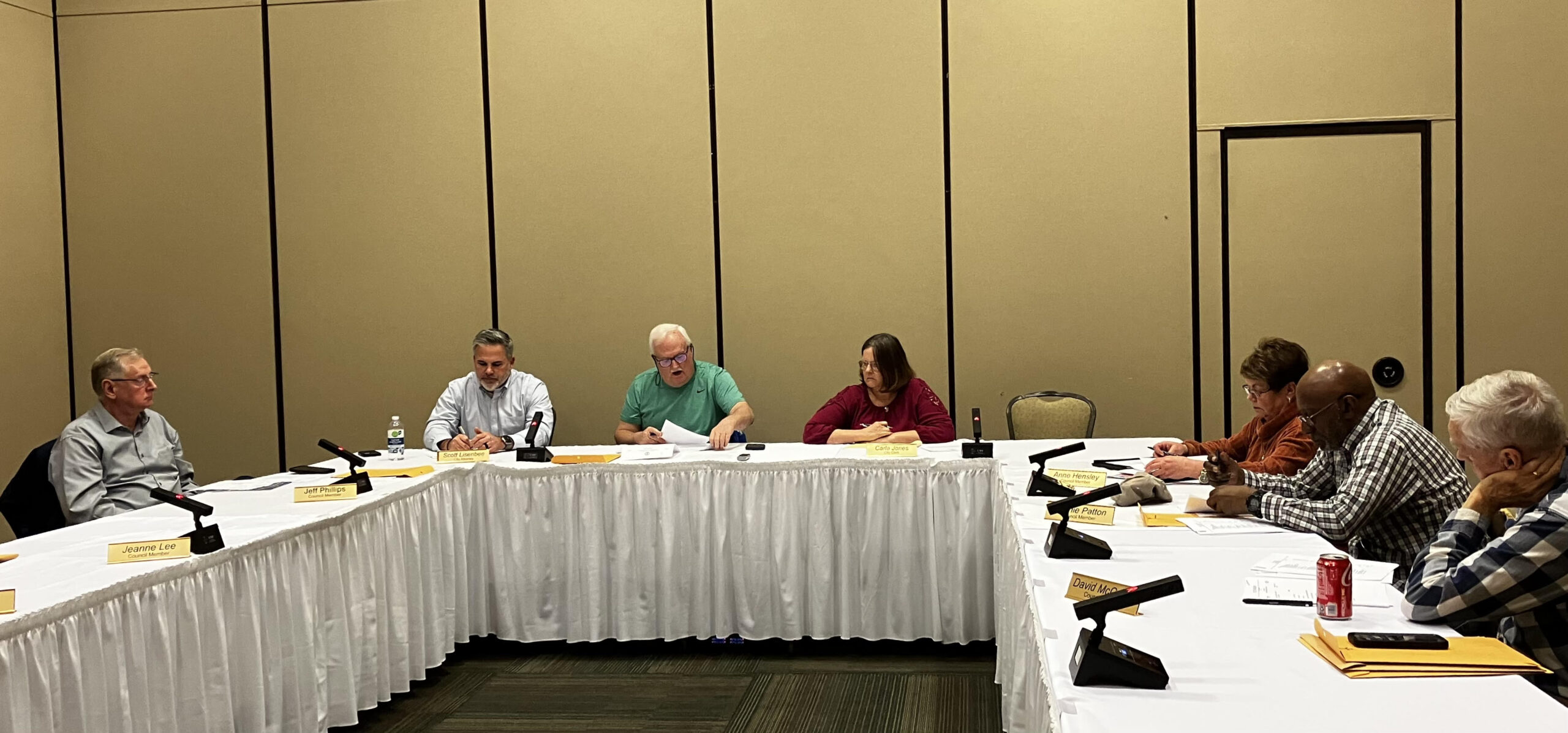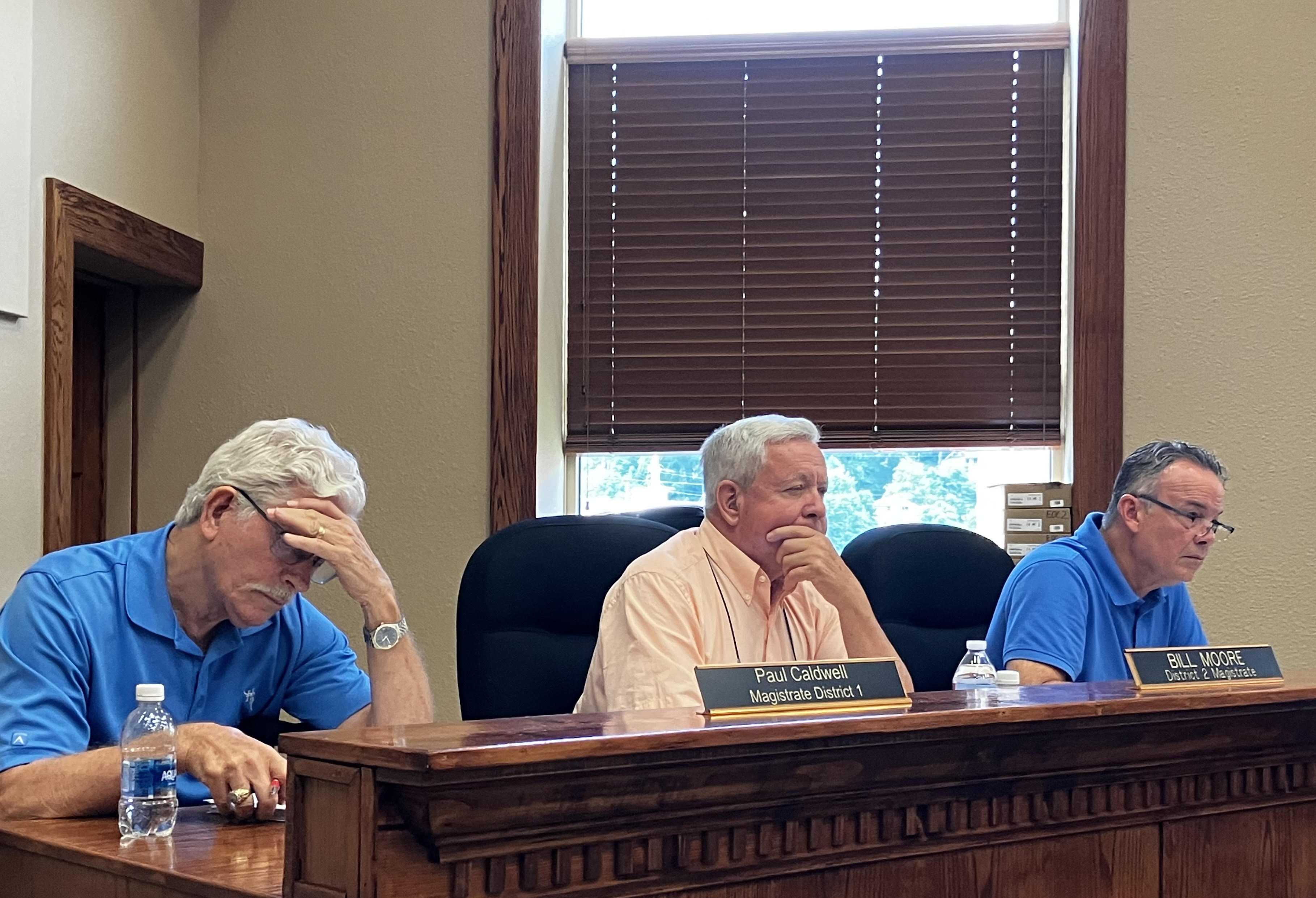Tri-Cities merger focus of discussion
Published 4:50 pm Tuesday, October 24, 2017



A quarter century of discussion of a Cumberland, Benham and Lynch merger was set aside by Tri-City Chamber of Commerce President Jeff Wilder to open a meeting Monday at the Benham Theater.
“This process began January 1, 2017. What happened in prior years is history. We are looking into the future,” said Wilder as he introduced officials from the Kentucky League of Cities, the group that is studying the feasibility of merging city governments of Cumberland, Benham and Lynch.
Wilder and several others stressed that neither the Tri-City Chamber of Commerce nor the Kentucky League of Cities was taking a stance on the issue, at least not until after a draft of the plan is presented in January followed by a full report in February.
“We’re not here to tell you what you should do, but what you could do,” said Tad Long, the director of community development for the KLC. “Only the voters of the cities can decide. We want to hear your comments.”
Long praised the work of the city governments and the willingness of city clerks from each to hand over an extensive amount of data needed to help the KLC prepare the report.
“We have the data gathered and are putting the numbers together,” Long said. “We received full cooperation from all three cities.”
Long noted the cities and residents have three options — to vote for merger, keep the status quo or work toward interlocal agreements to share services, especially in areas like water and sewage, where several noted that all three city systems in both were aging and in danger of failing. He said the “fall of 2018 is the earliest a referendum could take place.”
The city councils for Cumberland and Benham considered the gathering a meeting and had a quorum. Lynch did not have enough council members to attend for a quorum but was represented by mayor Johnny Adams and other city officials.
After Long explained the process, audience members asked numerous questions, including former Lynch mayor Tom Vicini, who originally proposed a merger of the Tri-Cities in the 1990s before backing off the suggestion. Vicini asked if the analysis would also include projections of what could happen to the cities down the road if the merger was not approved.
“We’ll have projections as a merged city and as individual cities,” Long said. “We’ll conduct a trend analysis to look at future costs.”
Long pointed out several times that the merger would not erase the debt of the cities but said agencies may be more willing to work with a merged city government to help ease the financial burden.
Roy Silver, who leads the Benham Power Board and is a professor at Southeast Kentucky Technical and Community College, asked several questions, including the governing structure for a possible merged government.
Chris Johnson, of legal services with the KLC, said if the merged government was approved all 19 council members currently serving would comprise the new merged council, at least until elections were held.
Johnson said the new government would initially take the form of the largest city, which is Cumberland, but noted that new council could adopt “ward elections” to “ensure local representation.” He said a problem with that idea is that sometimes you could see a situation where no one in a precinct wanted to run for the council.
Cumberland’s status as a wet city was also brought up and officials said the areas of the Tri-Cities that were currently wet or moist would remain that way and other areas would not be affected, unless voters in those precincts also approved some form of alcohol sales. He also said the new government could introduce a ballot measure for the entire merged area.
Adams asked Harlan County Judge-Executive Dan Mosley if the merged government could expect more help from the state.
Mosley was noncommittal on the merger but noted that all three cities had troubled water and sewage systems and said the state was “not eager to dump money into a system serving few people.”
A representative from Congressman Hal Rogers’ office said Rogers “supports the cities on whatever they choose to do.”
Woodrow Fields, a Benham resident, was the only speaker to state clearly that he opposed the merger as he said “I’m strictly against it,” after noting that Cumberland and Benham don’t actually border each other.
Johnson said there were”legally acceptable ways” and “steps could be taken” to make the merger work, even with the Clutts area located between the two cities.
Benham City Council member Bennie Massey was the only person to openly state he was in favor of the merger, noting that “we have to come together.”
Massey said he knew of 70-80 vacant homes in the area and said “a lot would move back if we could make a decision.”
Cumberland city council member David C. Dixon asked whether three cities have successfully merged before. A KLC official that there are two instances of this in the United States — one in Maryland and one in Nevada.
Long said the KLC would continue to assist throughout the process.
”We’re working our way through it. I don’t want to make any type of predictions until we know for certain what we’re talking about. That is our commitment to the chamber and each of the three cities,” he said. “There have been people over the years that say they want to help. Cities are the only thing we do. We will be here if you merge and if you don’t, to help you through the issues or to celebrate the great things in your city. Our goal is to help our member cities and to help you make an informed decision once the time comes.”








